A24’s ‘The Eternal Daughter’ is a gothic mystery that plays on the elements around it while feeding into the relationship between a woman and her mother to deliver a story that deeply unsettles the audience. Instead of resorting to the conventional methods used in a horror story, the film creates an atmosphere that seeps into the mind of the viewer and creates an eeriness that feels closer to home. While it might look like nothing much happens throughout the film, the empty spaces and sparse conversations only add more weight to the revelation at the end. If you are wondering what it means, then we’ve got you covered. SPOILERS AHEAD
The Eternal Daughter Plot Synopsis
Julie Hart, and her mother, Rosalind, arrive at a hotel to spend a weekend together. The hotel used to be Rosalind’s aunt’s estate where she spent time as a child as well as an adult. It is a place full of memories, which start to come back the more time Rosalind spends there. Julie tries to pry these memories out of her mother in an effort to understand her better. She is also working on a film about her and Rosalind, which leads her to confront her own emotions about their relationship.
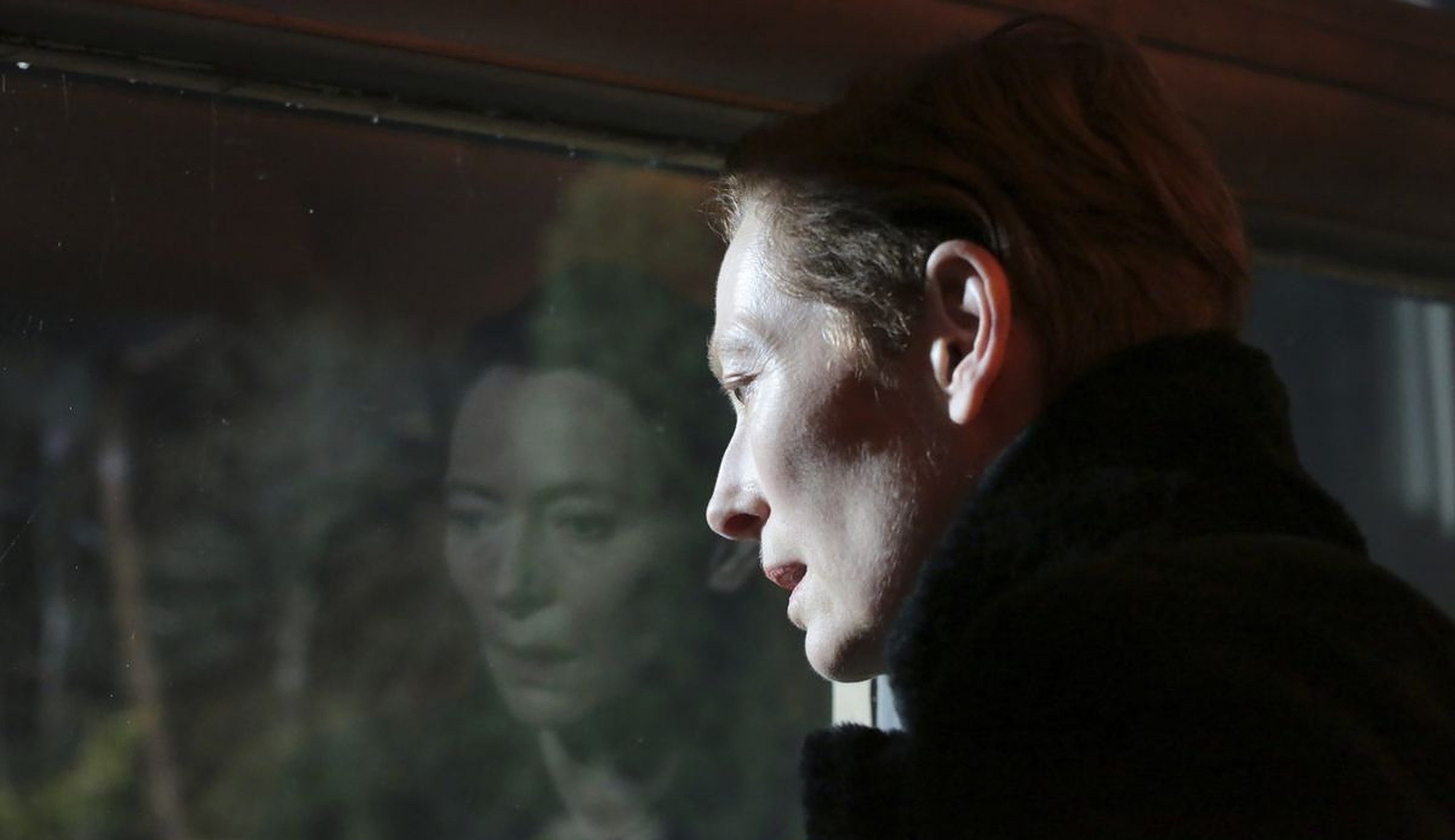
Things go off to a rocky start at the hotel when a rude receptionist doesn’t give them the room they’d reserved. Moreover, it seems like the entire hotel is empty except for them, and yet, there are noises and creaks that keep Julie awake at night. There is also the mysterious woman at the window that Julie sees every night she takes her dog out for a walk. All these things, combined with the fear that she has inadvertently made her mother unhappy by bringing her to a place connected to her sad memories, take a toll on Julie until eventually, she breaks down.
The Eternal Daughter Ending: Was Rosalind Dead All Along?
There are a lot of questions that come to mind while watching ‘The Eternal Daughter’, but the one that catches the attention of the viewer is the final dinner scene where it is revealed that Julie doesn’t have Rosalind by her side. It is supposed to be a celebratory birthday dinner for Rosalind, but things quickly turn sour when Rosalind says that she is not ready to eat just yet. Feeling weird about eating alone, Julie refuses to eat until her mother orders as well, which leads Julie to spill her feelings about her own mortality and loneliness. Then, the cake arrives, and we find Julie alone at the dinner table.
In the next scene, we find Rosalind and Julie holding hands while Rosalind passes away. This raises a lot of questions. When did Rosalind die? Was it during the weekend, or had she died even before Julie came to spend the weekend at the hotel? If so, then, does that mean that all this time, the Rosalind that we’d been seeing was never there at all? The answer to all these questions is rather simple when broken down to the timeline, but a little more complicated when viewed from the lens of Julie’s emotions.
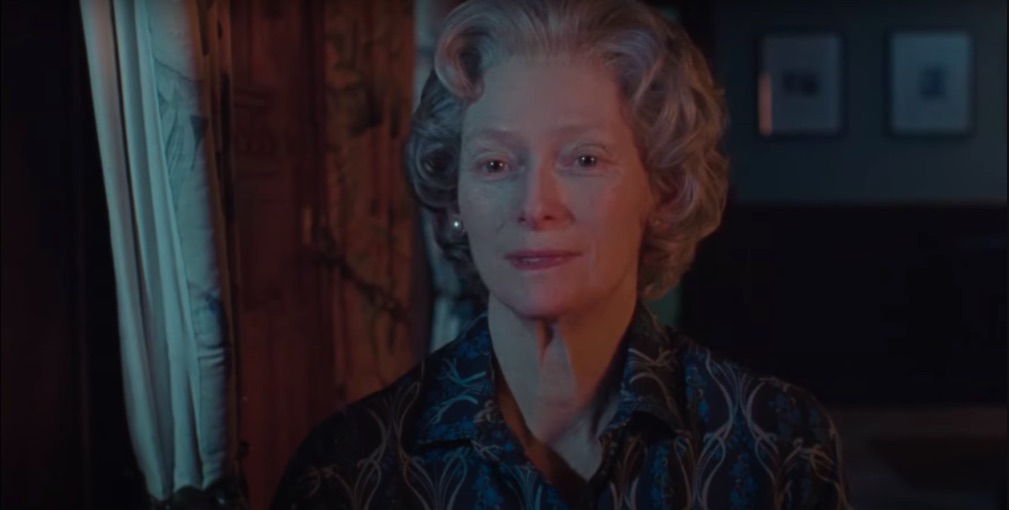
Here’s the possible order of events. Rosalind and Julie did come to spend a weekend at the hotel together, but that was at least a year before the final scene of the film. It was Rosalind’s birthday and to get to know her better, Julie brought her to what used to be her aunt’s estate, which brought back deeply buried memories for Rosalind. All the conversations that happen between the mother and daughter actually took place, and Julie recorded them for the purpose of writing her film.
Sometime during that weekend, probably around, or after, her birthday, Rosalind died. It is confirmed that she died at the hotel because we see her lying on the same bed and the room looks pretty much the same. For Julie, her mother’s death was a pivotal event for numerous reasons. With her death, both of Julie’s parents were now gone. Because she’d spent the past couple of years completely devoting herself to her mother’s care, their relationship had flipped in some way, making Rosalind the child and Julie the mother. This is something we find Rosalind discussing with Bill one afternoon. Thus, losing Rosalind hit Julie on a much deeper level, because she didn’t have children of her own, which is where the birthday dinner conversation comes into play.
Seeing her mother deteriorate in front of her eyes and finding herself taking care of her, Julie realizes that she will never have what Rosalind does. Over the years, she became so indulged in her career and then with her mother that she never gave time to start a family of her own. Now, seeing her mother die makes her confront her own mortality and how there will be no one to fuss over her when she comes to this state. She feels that time is running out for her and that makes her anxious about her own future.
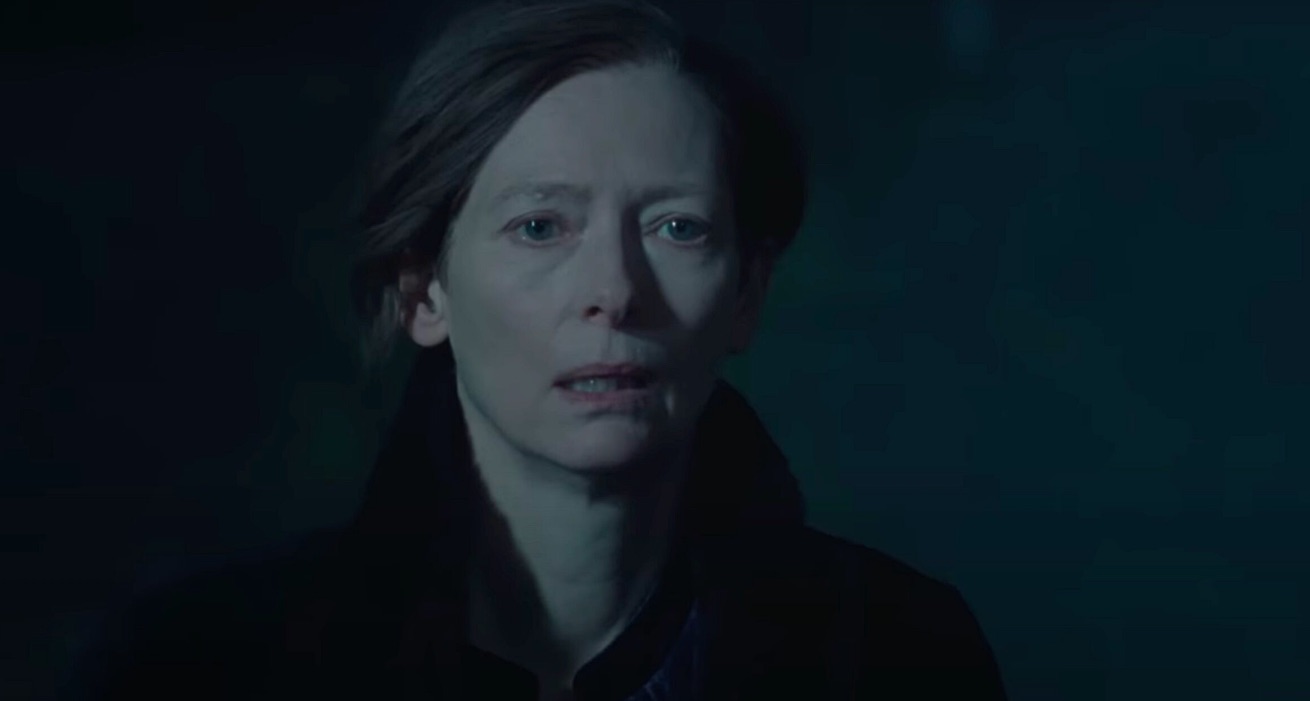
Another thing that eats at Julie is the feeling that despite spending all this time with her, she never really got to know her mother as well as she could have. She realizes this when her mother tells her about the traumatic memories related to the house. This is where Rosalind was when the news of her brother’s death arrived and also where she had a miscarriage. Julie didn’t know any of that, which makes her wonder what else she didn’t know about her mother. This not only makes her sad but also makes her question the film. Does she have the right to poke around in her mother’s life and dig out old wounds just for the sake of her story?
It is a combination of all these emotions that weighs heavy on Julie when she comes back next year to the hotel, this time alone. Because Rosalind used to live at that house and she died there too, Julie hopes that spending the weekend there will bring her closer to her mother. It is also her mother’s birthday, which makes it an even more emotional few days. However, her intention to find some peace of mind during this time is upturned when she becomes more restless than she’d been before she came there.
This is where the film actually begins but melds the events with the ones that happened while Rosalind was still alive. The fact that the mother and daughter rarely appear in the same frame (probably only thrice during the entire film) also gives us a sense of the distance between them. This could symbolize the detachment of their emotions and their inability to properly converse with one another, even when they love and care for each other very much. This inability to be in the same frame of the film also represents the disconnect between them as a mother and a daughter, and how they are not in the same frame of mind.
It also acts as a huge hint for the audience, who never see Rosalind converse with the receptionist, who is also the waitress. The only time we see Rosalind talk to someone else is when she has a conversation with Bill, which is actually Julie’s memory. This is what keeps us on our toes and sows doubts about Rosalind and whether or not she is real at all. In fact, the film answers that question with the woman in the window, which though faded, looks eerily like Rosalind. Previously, the woman in the window was mentioned by the driver, though it is not confirmed whether he saw Rosalind too. For Julie, in any case, this scene is more than just the haunting of the building. It is the haunting of the mind, as she is constantly thinking about her mother and associates her with the house.
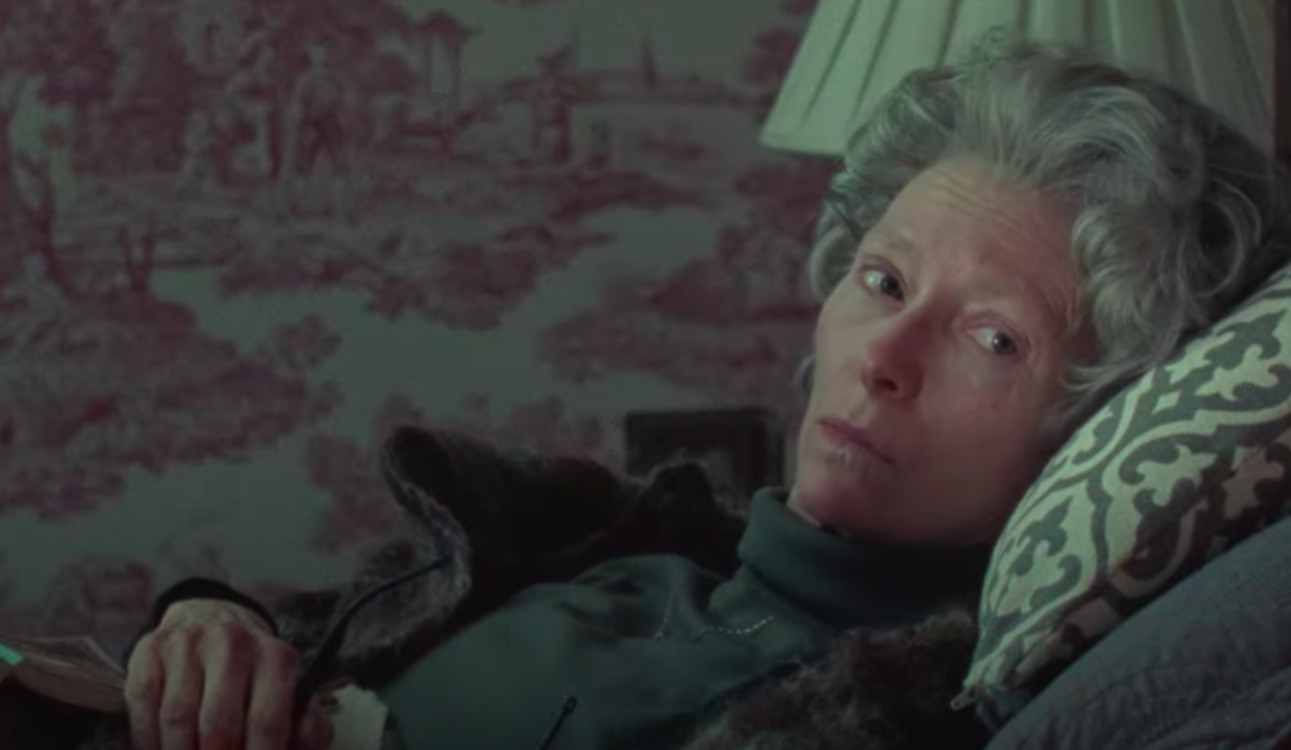
The fact that Julie and Rosalind look and sound like each other also adds another layer to this haunting. Through this, her mother becomes a reflection of herself in the future. Despite being two different people, the similarity of their faces closes the distance between them and the audience starts to wonder whether they are the same person after all. It is also another reminder of Julie’s mortality, the time that she doesn’t have much left. So, in a way, seeing her mother die is like seeing herself die, making the entire affair a little more morbid for her.
Julie comes to the hotel wishing to write the story that she’d intended to start the year she visited the place with her mother. Her return is also a way for her to replay those memories, either through the conversations she’d secretly recorded or through the simple matter of presence. As is said in the film, a house holds a lot of memories, and Julie wishes to relive some of them, to remember her mother as well as to write her story. She becomes so immersed in them that she loses the sense of time, which is what Rosalind says at some point in the film. She says that there is a muddle in her of “when”. The same happens with Julie, as the “then” and “now” get muddled up for her too. Still, there are a few hints to demarcate the past and the present.
The fact that this is the second time that Julie has come here and that she is struggling emotionally is proved by the mellowed behavior of an otherwise perpetually rude and indifferent receptionist. When Julie cries over the cake with her mother’s empty chair in front of her, the receptionist feels bad for her. She knows that Rosalind had died the previous year because she was there too. Similarly, Bill later checking up on Julie also shows that he was there the previous year, though he couldn’t attend the birthday celebration because he had some other matter to attend to. Both Bill and the receptionist know that it is a difficult time for Julie and they express their sympathies to her.
Does Julie Write the Film About Her Mother?
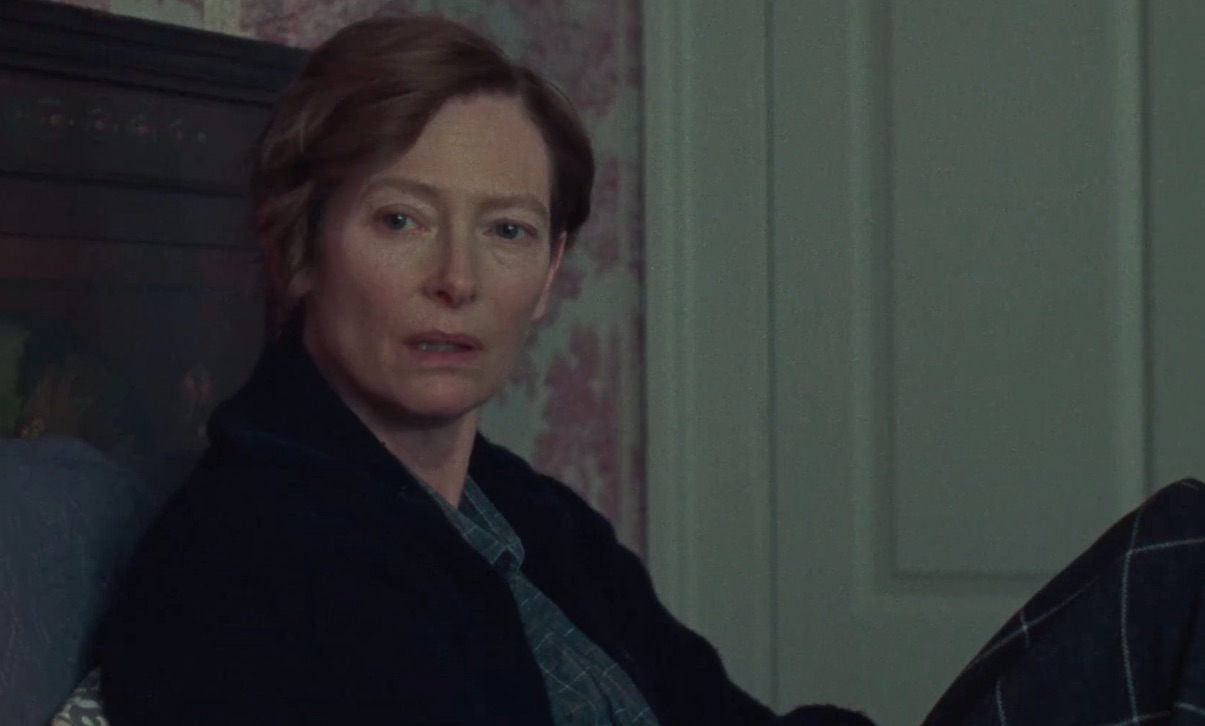
Julie’s intention in visiting the hotel alone was to take another look at her and Rosalind’s relationship. She wanted to write a story about them, but her own emotional struggles were keeping her from writing it. This is also reflected in the weather which is misty throughout the weekend. It’s like a layer over Julie’s own mind, wrapping her so deeply in the grief about her mother’s loss and the regrets she holds that she cannot start working on the story just yet. She’s still finding it, but reaching it means going through her own fears and insecurities and the love as well as the resentment towards her mother.
When she confronts that, she not only has a good night’s sleep but the next morning, the mist disappears and gives way to a bright day. This is when Julie makes headway with her writing. When she leaves, we also see a lot more people, compared to the days that she and her mother had seemingly spent alone in the hotel. This implies that the dark clouds in her mind have subsided and she is leaving the hotel a lot more clearheaded. Hence, it can be assumed that she succeeds in writing and making the film that she always intended to.
Interestingly, the first few lines of her film sound very similar to the beginning of ‘The Eternal Daughter’. With this, the film adds another layer to itself. It could mean that all that we saw up until the last few minutes is actually the film that Julie wrote rather than the events that actually happened to her. In a way, it represents director Joanna Hogg’s own experience of writing and making the film. The director relied on her own relationship with her mother to inform the story of ‘The Eternal Daughter’. The gothic horror element was her way to represent the different facets of her own life. With the story that Julie writes, it all comes full circle, though in a bit meta manner. Still, it ties up Julie’s story pretty nicely and we know that she has found some clarity and closure when it comes to her mother.

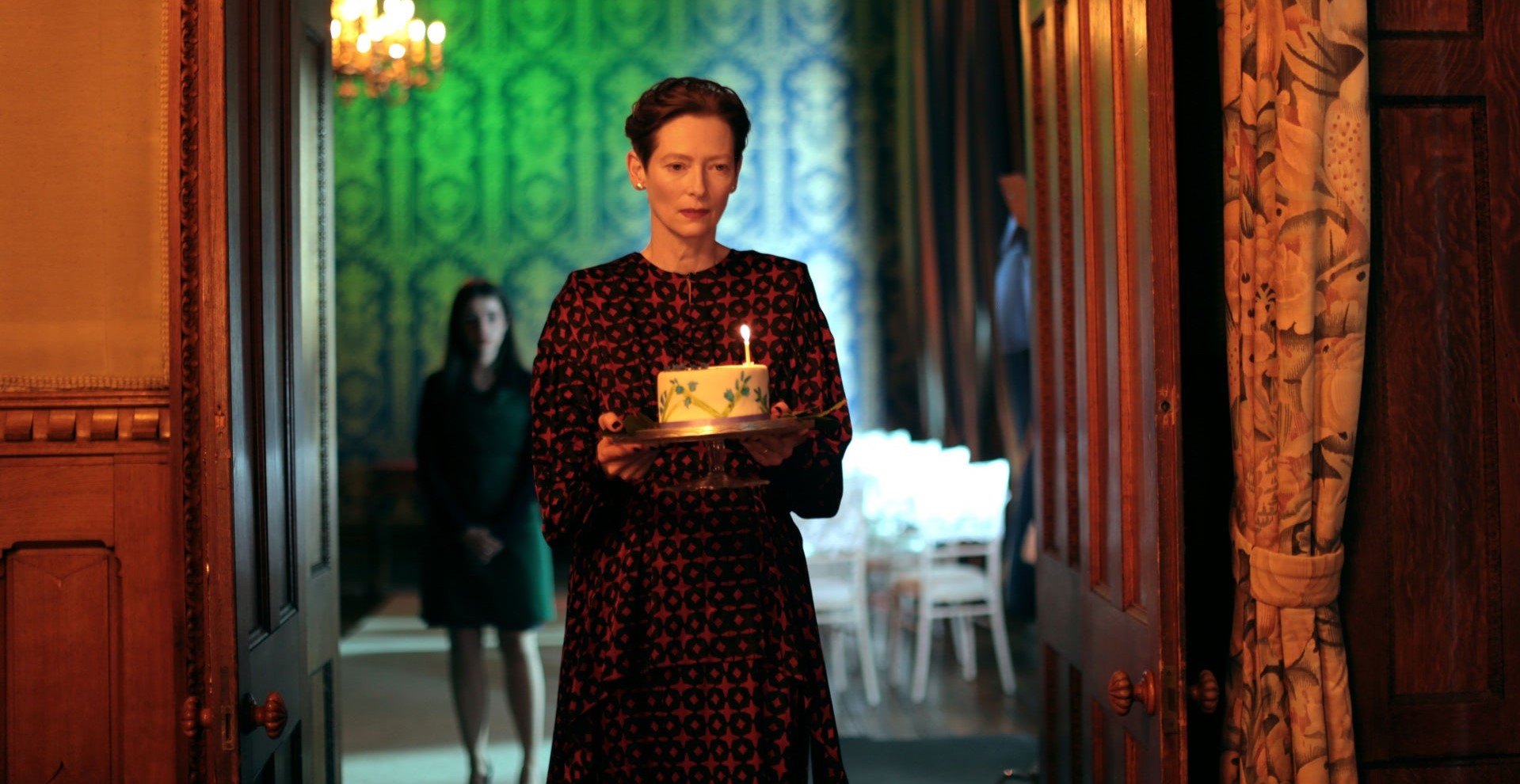
You must be logged in to post a comment.